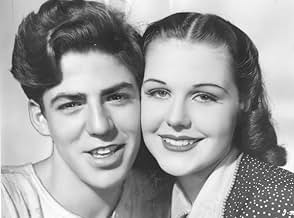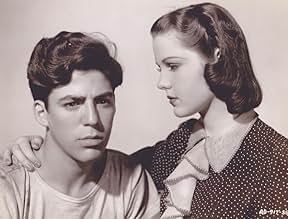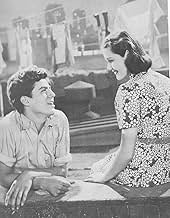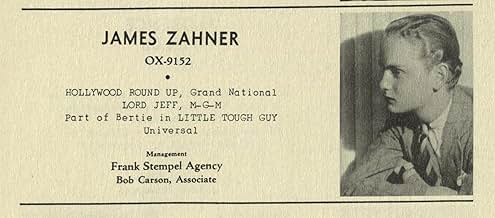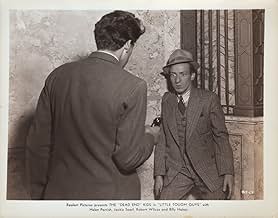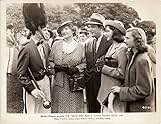AVALIAÇÃO DA IMDb
6,1/10
241
SUA AVALIAÇÃO
Adicionar um enredo no seu idiomaAfter his father is sentenced to death for accidentally killing a cop, Johnny's family is left to fight for survival. His sister becomes a burlesque performer for money while Johnny joins a ... Ler tudoAfter his father is sentenced to death for accidentally killing a cop, Johnny's family is left to fight for survival. His sister becomes a burlesque performer for money while Johnny joins a local gang and turns to a life of street crime.After his father is sentenced to death for accidentally killing a cop, Johnny's family is left to fight for survival. His sister becomes a burlesque performer for money while Johnny joins a local gang and turns to a life of street crime.
- Direção
- Roteiristas
- Artistas
- Prêmios
- 2 vitórias no total
Edward Pawley
- Jim Boylan
- (as Ed Pawley)
Hal E. Chester
- Dopey
- (as Hally Chester)
Victor Adams
- Secretary
- (não creditado)
Edward Arnold Jr.
- Fat
- (não creditado)
Hooper Atchley
- Mr. Randall
- (não creditado)
Avaliações em destaque
This film gives great insight as to how life was for many "street" kids in NYC right after the depression and it is eerily similar to the plight of street kids in NYC today. The "dead end kids" is an awesome name. They are wanna be thugs; Violent, aggressive, uneducated, beligerent, witty and daring. One kid even wears a yankee baseball jersey with # 3 on the back just like the kids wear Derek Jeter jerseys today.)
Up until a few years ago, the lower east side was a similarly tough area, except it was inhabited by mostly people of color. Gentrification began in the 90s and has since transformed the lower east side into an affluent, yuppie filled, unaffordable place to live for the average citizen of any color in NYC.
While watching the movie, I listened to the street-slang and trouble-making behavior of the "dead end kids", and I couldn't help but saying to myself that this would be a so called "hood" film if it had been made today, like "Juice" starring Omar Epps and Tupac. Funny how the names and faces have changed, but the story is still the same.
Being from NYC myself, I felt suspended in time while watching it. My Mom was 2 and my father(may he rest in peace) was 11 in 1938.
Up until a few years ago, the lower east side was a similarly tough area, except it was inhabited by mostly people of color. Gentrification began in the 90s and has since transformed the lower east side into an affluent, yuppie filled, unaffordable place to live for the average citizen of any color in NYC.
While watching the movie, I listened to the street-slang and trouble-making behavior of the "dead end kids", and I couldn't help but saying to myself that this would be a so called "hood" film if it had been made today, like "Juice" starring Omar Epps and Tupac. Funny how the names and faces have changed, but the story is still the same.
Being from NYC myself, I felt suspended in time while watching it. My Mom was 2 and my father(may he rest in peace) was 11 in 1938.
LITTLE TOUGH GUY (Universal, 1938), directed by Harold Young, best known for his direction of the British adventure classic, THE SCARLET PIMPERNEL (1934), became the studio's answer and contribution to the Samuel Goldwyn social drama, DEAD END (1937). Though not as classic as DEAD END nor ANGELS WITH DIRTY FACES (Warner Brothers, 1938), thus missing tough guy leadership provided by either Humphrey Bogart or James Cagney, LITTLE TOUGH GUY contains some of the familiar plot elements along with gang members from the aforementioned dramas as Billy Halop, Huntz Hall, Gabriel Dell, and Bernard Punsley, yet missing Leo Gorcey and Bobby Jordan in the process. There's even an added attraction of Marjorie Main from DEAD END once again playing the long suffering mother, with little or no opportunity doing her forte in comedy.
Set in the tenements of New York City, the story revolves around the Boylan family: Kay (Helen Parrish), the eldest child of Jim and Mrs. Boylan (Edward Pawley and Marjorie Main), engaged to marry Paul Wilson (Robert Wilcox). She also has a younger teenage brother named Johnny (Billy Halop) who would rather be working than going to school. Johnny is admired by Rita Belle Warren (Peggy Stewart), but gives little attention to how he feels about her. As unemployed Jim Boylan attempts finding a new job at a factory where employees are striking for better wages, he's later accused and arrested for the murder of a policeman. For this, Johnny finds himself being ignored by his friends; Kay loses her job and breaks her engagement to Paul; leading to the Boylans become evicted from their apartment, having to move to another part of town. As Johnny earns money selling newspapers on street corners, he encounters gang leader "Pig" (Huntz Hall). Following a street fight in which Johnny wins, he soon develops a lasting friendship with Pig and his gang, String (Gabriel Dell), Sniper (David Gorcey) and Dopey (Hally Chester). After his father is found guilty and executed, Johnny and his new friends join forces in forming a crime wave on their own, even taking in Cyril Gerrard (Jackie Searl), a bored rich kid out for adventure, and getting deeper in trouble along the way. Featuring Helen MacKeller, Olin Howland, Charles Trowbridge and Robert Homans in smaller roles.
What makes LITTLE TOUGH GUY most interesting, especially for anyone familiar with the much latter and better known works of Leo Gorcey and Huntz Hall in the long-running "Bowery Boys" series for Monogram (1946-1958) is the presence of Huntz Hall. Better known for playing goofy characters from that series, he's believably good playing a tough gang leader. Though the first half of the plot development revolves around Billy Halop and other characters (Robert Wilcox and Helen Parrish), the second half builds up considerably involving the teenage crime wave.
Interestingly, Universal produced what developed into "The Little Tough Guys" series (1938-1943), but aside from the 85 minute LITTLE TOUGH GUY playing as part of a 45-minute featurette in public television's "Matinee at the Bijou" in the 1980s, and becoming available on both video cassette and DVD, the subsequent films that followed, with Halop playing different character roles in some, never became as famous as Monogram's most televised "East Side Kids" and "The Bowery Boys." LITTLE TOUGH GUY does not go without interest and should be considered for viewing at least once. (**1/2)
Set in the tenements of New York City, the story revolves around the Boylan family: Kay (Helen Parrish), the eldest child of Jim and Mrs. Boylan (Edward Pawley and Marjorie Main), engaged to marry Paul Wilson (Robert Wilcox). She also has a younger teenage brother named Johnny (Billy Halop) who would rather be working than going to school. Johnny is admired by Rita Belle Warren (Peggy Stewart), but gives little attention to how he feels about her. As unemployed Jim Boylan attempts finding a new job at a factory where employees are striking for better wages, he's later accused and arrested for the murder of a policeman. For this, Johnny finds himself being ignored by his friends; Kay loses her job and breaks her engagement to Paul; leading to the Boylans become evicted from their apartment, having to move to another part of town. As Johnny earns money selling newspapers on street corners, he encounters gang leader "Pig" (Huntz Hall). Following a street fight in which Johnny wins, he soon develops a lasting friendship with Pig and his gang, String (Gabriel Dell), Sniper (David Gorcey) and Dopey (Hally Chester). After his father is found guilty and executed, Johnny and his new friends join forces in forming a crime wave on their own, even taking in Cyril Gerrard (Jackie Searl), a bored rich kid out for adventure, and getting deeper in trouble along the way. Featuring Helen MacKeller, Olin Howland, Charles Trowbridge and Robert Homans in smaller roles.
What makes LITTLE TOUGH GUY most interesting, especially for anyone familiar with the much latter and better known works of Leo Gorcey and Huntz Hall in the long-running "Bowery Boys" series for Monogram (1946-1958) is the presence of Huntz Hall. Better known for playing goofy characters from that series, he's believably good playing a tough gang leader. Though the first half of the plot development revolves around Billy Halop and other characters (Robert Wilcox and Helen Parrish), the second half builds up considerably involving the teenage crime wave.
Interestingly, Universal produced what developed into "The Little Tough Guys" series (1938-1943), but aside from the 85 minute LITTLE TOUGH GUY playing as part of a 45-minute featurette in public television's "Matinee at the Bijou" in the 1980s, and becoming available on both video cassette and DVD, the subsequent films that followed, with Halop playing different character roles in some, never became as famous as Monogram's most televised "East Side Kids" and "The Bowery Boys." LITTLE TOUGH GUY does not go without interest and should be considered for viewing at least once. (**1/2)
The weakest and least known of all the film series spawned from the "Dead End" Kids were those made by Universal. These Universal films which were cranked out between 1938 and 1943, overlapped the concurrent "Dead End" Kids at Warner Bros (1938-1939), and The East Side Kids films (1940-1945) at Monogram. LITTLE TOUGH GUY was the first of Universals contribution to the series. This first entry is only passable. The first half is poorly directed and many elements are hard to take. The second half, when the kids go on a wild crime spree comes off better. Of interest to fans of the series is seeing Huntz Hall, in a departure from playing his usual dumbbell role, plays a real tough guy in this one. This was also David Gorceys first appearance in the series. His more famous brother Leo was not in this one (nor any of the subsequent Universal entries). Hally Chester also makes him debut as a gang member in this one (he previously had a bit part in CRIME SCHOOL.)
I have seen this movie and found it to be somewhat entertaining. It is one of only two movies in which the former Broadway star and (later) radio star (Big Town), Edward Pawley, plays the good guy! He plays the role of "Jim Boylan", father of "Johnny Boylan" (Billy Halop). Mr. Pawley usually played villainous roles in his more than 50 movies during a 10-year stint in Hollywood. One other exception was in the movie "Hoosier Schoolboy" in which he played the role of Captain Carter (Mickey Rooney's father)who was also a war hero with a drinking problem. Edward Pawley was probably best known in movies for his role as Danny Leggett (aka, Public Enemy Number One) in the James Cagney vehicle, "G-MEN." He also had feature roles in movies such as "The Oklahoma Kid" in which he played Humphrey Bogart's partner (Ace Doolin), "Romance of the Limberlost" in which he played Jean Parker's suitor (Jed Corson), Thirteen Women in which he played "Burns", Myrna Loy's accomplice in crime, "Romance On The Range" in which he played Roy Rogers' ranch boss and covert outlaw (Jerome Banning), et cetera, et cetera.
This film is one of the earliest incarnations of The Dead End Kids--a group of lovable tough teens who were first introduced in the play "Dead End" and who appeared in several films for Warner Brothers AND Universal. The Warner films were more popular (as well as better) and included "Dead End" (the movie version of the play) and "Crime School". As for Universal, they hired some of these boys away from Warner for a few films and serials. Not only the composition of the Dead End Kids changed over the years but so did their name--being renamed 'The Little Toughguys' (for Universal), then The East Side Kids and ultimately The Bowery Boys. Lovers of these films will no doubt recognize Huntz Hall, Billy Halop and even David Gorcey (Leo's brother) in "Little Tough Guys" but many of the other regulars of the era are missing (Bobby Jordan and Leo Gorcey were not signed by Universal and would return later after the Little Toughguy films ended). In total, they'd make 89 films and three serials for four different studios! Confusing? A bit...but is "Little Toughguys" any good? That IS the important thing as far as this review goes.
Johnny Boyland (Billy Halop) is mad. His father was convicted of murder. The family is evicted and Johnny's sister is fired because of her father...even though she'd done nothing wrong. The family is clearly in crisis. Not surprisingly, Johnny vows to be bad and lead a life of crime. So, he assembles a gang which turns out to be financed by the teenage son of the District Attorney who convicted Johnny's father! What gives? What's really going on here?!
This is pretty typical of these earlier films featuring the boys--with a strong emphasis on crime and rehabilitation. In other words, they have a strong social conscience. Later the boys would be less criminal...more just knuckleheads! All in all, entertaining and very similar to other early films from these boys.
Johnny Boyland (Billy Halop) is mad. His father was convicted of murder. The family is evicted and Johnny's sister is fired because of her father...even though she'd done nothing wrong. The family is clearly in crisis. Not surprisingly, Johnny vows to be bad and lead a life of crime. So, he assembles a gang which turns out to be financed by the teenage son of the District Attorney who convicted Johnny's father! What gives? What's really going on here?!
This is pretty typical of these earlier films featuring the boys--with a strong emphasis on crime and rehabilitation. In other words, they have a strong social conscience. Later the boys would be less criminal...more just knuckleheads! All in all, entertaining and very similar to other early films from these boys.
Você sabia?
- ConexõesFeatured in Film Breaks: The Dead End Kids (1999)
Principais escolhas
Faça login para avaliar e ver a lista de recomendações personalizadas
Detalhes
- Data de lançamento
- País de origem
- Idioma
- Também conhecido como
- Little Tough Guy
- Locações de filme
- Empresa de produção
- Consulte mais créditos da empresa na IMDbPro
- Tempo de duração1 hora 26 minutos
- Cor
- Proporção
- 1.37 : 1
Contribua para esta página
Sugerir uma alteração ou adicionar conteúdo ausente

